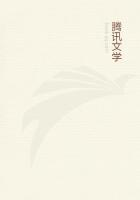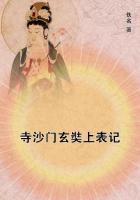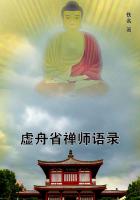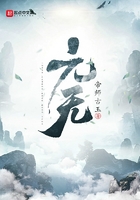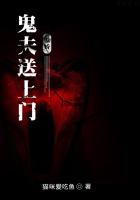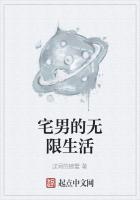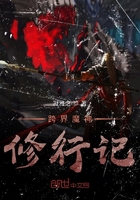[Because in such case discipline becomes relaxed, and unwonted severity is necessary to keep the men to their duty.]
37. To begin by bluster, but afterwards to take fright at the enemy's numbers, shows a supreme lack of intelligence.
[I follow the interpretation of Ts`ao Kung, also adopted by Li Ch`uan, Tu Mu, and Chang Yu. Another possible meaning set forth by Tu Yu, Chia Lin, Mei Tao-ch`en and Wang Hsi, is: "The general who is first tyrannical towards his men, and then in terror lest they should mutiny, etc." This would connect the sentence with what went before about rewards and punishments.]
38. When envoys are sent with compliments in their mouths, it is a sign that the enemy wishes for a truce.
[Tu Mu says: "If the enemy open friendly relations be sending hostages, it is a sign that they are anxious for an armistice, either because their strength is exhausted or for some other reason." But it hardly needs a Sun Tzu to draw such an obvious inference.]
39. If the enemy's troops march up angrily and remain facing ours for a long time without either joining battle or taking themselves off again, the situation is one that demands great vigilance and circumspection.
[Ts`ao Kung says a maneuver of this sort may be only a ruse to gain time for an unexpected flank attack or the laying of an ambush.]
40. If our troops are no more in number than the enemy, that is amply sufficient; it only means that no direct attack can be made.
[Literally, "no martial advance." That is to say, CHENGtactics and frontal attacks must be eschewed, and stratagem resorted to instead.]
What we can do is simply to concentrate all our available strength, keep a close watch on the enemy, and obtain reinforcements.
[This is an obscure sentence, and none of the commentators succeed in squeezing very good sense out of it. I follow Li Ch`uan, who appears to offer the ******st explanation: "Only the side that gets more men will win." Fortunately we have Chang Yu to expound its meaning to us in language which is lucidity itself: "When the numbers are even, and no favorable opening presents itself, although we may not be strong enough to deliver a sustained attack, we can find additional recruits amongst our sutlers and camp-followers, and then, concentrating our forces and keeping a close watch on the enemy, contrive to snatch the victory. But we must avoid borrowing foreign soldiers to help us." He then quotes from Wei Liao Tzu, ch. 3: "The nominal strength of mercenary troops may be 100,000, but their real value will be not more than half that figure."]
41. He who exercises no forethought but makes light of his opponents is sure to be captured by them.
[Ch`en Hao, quoting from the TSO CHUAN, says: "If bees and scorpions carry poison, how much more will a hostile state! Even a puny opponent, then, should not be treated with contempt."]
42. If soldiers are punished before they have grown attached to you, they will not prove submissive; and, unless submissive, then will be practically useless. If, when the soldiers have become attached to you, punishments are not enforced, they will still be unless.
43. Therefore soldiers must be treated in the first instance with humanity, but kept under control by means of iron discipline.
[Yen Tzu [B.C. 493] said of Ssu-ma Jang-chu: "His civil virtues endeared him to the people; his martial prowess kept his enemies in awe." Cf. Wu Tzu, ch. 4 init.: "The ideal commander unites culture with a warlike temper; the profession of arms requires a combination of hardness and tenderness."]
This is a certain road to victory.
44. If in training soldiers commands are habitually enforced, the army will be well-disciplined; if not, its discipline will be bad.
45. If a general shows confidence in his men but always insists on his orders being obeyed,[Tu Mu says: "A general ought in time of peace to show kindly confidence in his men and also make his authority respected, so that when they come to face the enemy, orders may be executed and discipline maintained, because they all trust and look up to him." What Sun Tzu has said in ss. 44, however, would lead one rather to expect something like this: "If a general is always confident that his orders will be carried out," etc."]
the gain will be mutual.
[Chang Yu says: "The general has confidence in the men under his command, and the men are docile, having confidence in him. Thus the gain is mutual" He quotes a pregnant sentence from Wei Liao Tzu, ch. 4: "The art of giving orders is not to try to rectify minor blunders and not to be swayed by petty doubts." Vacillation and fussiness are the surest means of sapping the confidence of an army.]
[1] "Aids to Scouting," p. 26.
X. TERRAIN
[Only about a third of the chapter, comprising ss. ss. 1-13, deals with "terrain," the subject being more fully treated in ch.
XI. The "six calamities" are discussed in SS. 14-20, and the rest of the chapter is again a mere string of desultory remarks, though not less interesting, perhaps, on that account.]
1. Sun Tzu said: We may distinguish six kinds of terrain, to wit: (1) Accessible ground;[Mei Yao-ch`en says: "plentifully provided with roads and means of communications."]
(2) entangling ground;
[The same commentator says: "Net-like country, venturing into which you become entangled."]
(3) temporizing ground;
[Ground which allows you to "stave off" or "delay."]
(4) narrow passes; (5) precipitous heights; (6) positions at a great distance from the enemy.
[It is hardly necessary to point out the faultiness of this classification. A strange lack of logical perception is shown in the Chinaman's unquestioning acceptance of glaring cross-divisions such as the above.]
2. Ground which can be freely traversed by both sides is called ACCESSIBLE.
3. With regard to ground of this nature, be before the enemy in occupying the raised and sunny spots, and carefully guard your line of supplies.

